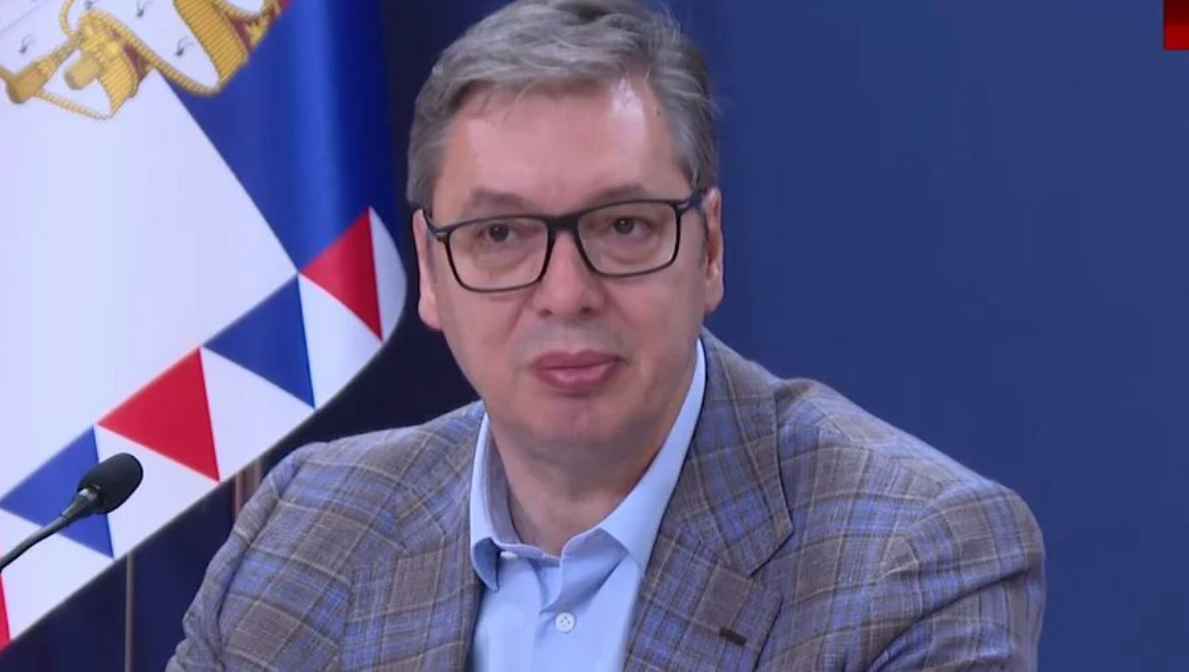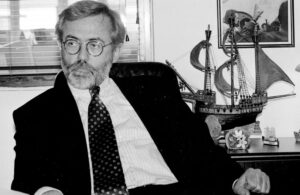On 21 November, Serbia’s RTS aired its Drugi Dnevnik news programme earlier than usual, beginning at 5:15 pm instead of the typical 7:30 pm slot, to accommodate the Denmark-Serbia basketball match. Just five minutes into the broadcast, President Aleksandar Vucic appeared as a guest, delivering sharp criticism and accusations against RTS, triggered by a 34-second news segment he perceived as biased.
The segment in question reported on opposition activities and student protests but appears to have overshadowed earlier extensive coverage of a tragic accident in Novi Sad, which claimed 15 lives following the collapse of a railway station canopy. Vucic’s dissatisfaction centred on the brief mention of the protests, which he claimed painted a misleading picture of unrest in the country.
Controversial guest appearance
In his remarks, Vucic accused RTS of being worse than privately owned networks N1 and Nova S, often critical of the government. „RTS exerts the greatest pressure, even more than them,“ said Vucic, referring to the broadcaster’s mention of protests involving small groups of activists. „In the first two minutes of the news, you referenced three gatherings that collectively involved around 180 people, none of which had any real impact. Yet you present it as though the country is in a state of emergency,“ he asserted.
When the news anchor attempted to clarify RTS’s editorial choices, Vucic interrupted, dismissing her explanation outright with a blunt „you didn’t.“
Media expert responds
The President’s outburst drew criticism from retired journalism professor Rade Veljanovski, who condemned Vucic’s behaviour as „unacceptable“ and an affront to public broadcasting standards. „Such rhetoric is intolerable from anyone, let alone the head of state. He has humiliated RTS and undermined it entirely,“ Veljanovski said in an interview with N1.
Veljanovski suggested that Vucic’s intent was to portray RTS as an independent and critical media outlet, despite evidence to the contrary. „This disciplinary approach during a live broadcast demonstrates his desire for every piece of news to align with his views and desires,“ he argued.
He also criticised RTS’s editorial team, alleging that it views its role as serving the government. „Even when RTS occasionally allows certain information to slip through, it’s not enough for Vucic. He seems intent on closing even the smallest window of transparency,“ Veljanovski added.
Farsical aspects
Veljanovski pointed out several peculiarities in Vucic’s appearance, noting that it was heavily promoted throughout the day. He questioned the editorial independence of RTS, suggesting that Vucic seems to appear on the channel whenever he chooses, rather than when editorial judgment deems it appropriate.
Furthermore, the professor highlighted how RTS appeared unusually prepared for the President’s remarks. For instance, as he spoke about the deteriorating condition of the Stari Savski Bridge, the studio screens displayed detailed images of its decayed wooden supports and rusted steel elements, indicating prior coordination.
Broader implications
Veljanovski also observed the anchor’s timid attempts to interject during Vucic’s tirade, contrasting it with journalistic standards in other countries where a guest behaving similarly might have been asked to leave the studio.
The controversy reflects broader concerns about media freedom in Serbia, with critics frequently accusing the government of exerting undue influence over the public broadcaster. The incident underscores tensions between the state and independent media and raises questions about RTS’s ability to operate free from political pressure.
Source: N1




